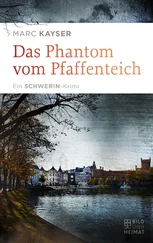Jo Nesbo - Phantom
Здесь есть возможность читать онлайн «Jo Nesbo - Phantom» весь текст электронной книги совершенно бесплатно (целиком полную версию без сокращений). В некоторых случаях можно слушать аудио, скачать через торрент в формате fb2 и присутствует краткое содержание. Жанр: Триллер, на английском языке. Описание произведения, (предисловие) а так же отзывы посетителей доступны на портале библиотеки ЛибКат.
- Название:Phantom
- Автор:
- Жанр:
- Год:неизвестен
- ISBN:нет данных
- Рейтинг книги:4 / 5. Голосов: 2
-
Избранное:Добавить в избранное
- Отзывы:
-
Ваша оценка:
- 80
- 1
- 2
- 3
- 4
- 5
Phantom: краткое содержание, описание и аннотация
Предлагаем к чтению аннотацию, описание, краткое содержание или предисловие (зависит от того, что написал сам автор книги «Phantom»). Если вы не нашли необходимую информацию о книге — напишите в комментариях, мы постараемся отыскать её.
Phantom — читать онлайн бесплатно полную книгу (весь текст) целиком
Ниже представлен текст книги, разбитый по страницам. Система сохранения места последней прочитанной страницы, позволяет с удобством читать онлайн бесплатно книгу «Phantom», без необходимости каждый раз заново искать на чём Вы остановились. Поставьте закладку, и сможете в любой момент перейти на страницу, на которой закончили чтение.
Интервал:
Закладка:
Officer Berntsen knew in rough terms what that meant. Long days with your feet on the desk.
Sometimes he longed to be back at Kripos. Murder was not like narc, it wasn’t politics, it was just solving a case, period. But Mikael Bellman himself had insisted Truls should accompany him from Bryn to Police HQ, said he needed allies down there in enemy territory, someone he could trust, someone who could cover his flank if he was attacked. Said it without saying it: the way Mikael had covered Truls’s flank. As in the recent case of the boy on remand with whom Truls had been a bit heavy-handed and who, so terribly unfortunate, had received an injury to the face. Mikael had given Truls a bollocking, of course, said he hated police violence, didn’t want to see it in his department, said that now, alas, it was his responsibility as boss to report Truls to the police lawyer, then she would assess whether it should go further to the Special Unit. But the boy’s eyesight had returned to almost normal, Mikael had dealt with the boy’s solicitor, the charge of possessing drugs had been dropped, and nothing happened after that.
The same as nothing happened here.
Long days with feet on the desk.
And that was where Truls was about to put them — as he did at least ten times a day — when he looked out onto Bots Park and the old linden tree in the middle of the avenue leading up to the prison.
It had been put up.
The red poster.
He felt his skin tingle, his pulse rise. And his mood.
In a flash he was up, his jacket was on and his coffee abandoned.
Gamlebyen Church was a brisk eight-minute walk from Police HQ. Truls Berntsen walked down Oslo gate to Minne Park, left over Dyvekes Bridge and he was in the heart of Oslo, where the town had originated. The church was unadorned to the point of appearing poor, without any of the trite ornaments on the new Romantic church by Police HQ. But Gamlebyen Church had a more exciting history. At least if half of what his grandmother had told him during his childhood in Manglerud was true. The Berntsen family had moved from a dilapidated city-centre block to the satellite town of Manglerud when it was constructed at the end of the 1950s. But, strangely enough, it was them — the genuine Oslo family with Berntsen workers spanning three generations — who felt like immigrants. For most people in the satellite towns were farmers or people who came to town from far away to create a new life. And when Truls’s father got drunk in the seventies and the eighties and sat in their flat shouting at everyone and everything, Truls fled to his best — and only — friend, Mikael. Or down to his grandmother in Gamlebyen. She had told him that Gamlebyen Church had been built on top of a monastery from the 1200s, in which the monks had locked themselves away from the Black Death to pray, though folk said it was to escape their Christian duty to tend the contagion carriers. When, after eight months without a sign of life, the Chancellor broke down the doors of the monastery, rats were feasting on the monks’ rotting bodies.
His grandmother’s favourite bedtime story was about when a lunatic asylum — known locally as ‘The Madhouse’ — was built on the same site, and some of the inmates complained that hooded men were walking the corridors at night. And that when one of the hoods was ripped off, a pale face was seen, with rat bites and empty eye sockets. But the story Truls liked best was the one about Askild Oregod, Askild Good Ears. He lived and died more than a hundred years ago, at the time Kristiania, as Oslo was known then, became a proper town, and a church had long existed on the site. It was said that his ghost walked the cemetery, adjacent streets, the harbour district and Kvadraturen. But never further because he had only one leg and needed to get back to his grave before light, his grandmother said. Askild Oregod had lost his leg under the wheel of a fire wagon when he was three, but Truls’s grandmother said the fact that they gave him a nickname based on his large ears instead was an example of Oslo East humour. They were hard times, and for a child with one leg the choice of occupation was fairly obvious. So Askild Oregod begged and became a familiar sight hobbling through the burgeoning town, always friendly and always ready for a chat. And in particular with those sitting in pubs during the day. Without a job. Yet sometimes they suddenly had money in their hands. Then the odd coin often came Askild’s way as well. But occasionally Askild needed a bit more, and then he would tell the police which of them had been extra generous of late. And who, well into the fourth glass, and — unsuspecting of the harmless beggar on the periphery — told others that they had been offered the chance to rob the goldsmith in Karl Johans gate, or a timber merchant in Drammen. Rumours began to spread that Askild’s ears were indeed good, and after a gang of robbers in Kampen were arrested, Askild disappeared. He was never seen again, but one winter’s morning, on the steps of Gamlebyen Church, a crutch and two severed ears appeared. Askild had been buried somewhere in the graveyard, but as no priest had pronounced his blessing, his spirit still walked abroad. And after the onset of night, in Kvadraturen or around the church, you could bump into a man, hobbling with his cap pulled well over his head, begging for two ore. And then it was bad luck not to give the beggar a coin.
That was what his grandmother had told him. Nevertheless, Truls Berntsen ignored the lean beggar with the foreign coat and tanned skin sitting by the cemetery gate, strode down the gravel between the gravestones as he counted, turned left when he got to seven, to the right when he got to three and stopped by the fourth gravestone.
The name carved into the gravestone meant nothing to him. A. C. Rud. He had died as Norway gained its independence in 1905, only twenty-nine years old, but apart from the name and the dates there was no text, no imperative to rest in peace, nor any other winged words. Perhaps because the coarse gravestone was so small. But the blank, rough surface of the stone meant it was perfect for chalking messages, which must have been why they chose it.
LTZHUSCRDTO RNBU
Truls deciphered the text, using the simple code they had developed so that casual passers-by wouldn’t understand. He began at the end, and read the letters in pairs, moving backwards along the line until he reached the final three letters.
BURN TORD SCHULTZ
Truls Berntsen didn’t write it down. Didn’t need to. He had a good memory for names that brought him closer to the leather seats in an Audi Q5 2.0 6-speed manual. He used his jacket sleeve to erase the letters.
The beggar looked up as Truls passed on his way out. Brown doggy eyes. There was probably a band of beggars and a big, fat car waiting somewhere. Mercedes, wasn’t that what they liked? The church bell rang. According to the price list, a Q5 cost 666,000 kroner. If there was a hidden message in those figures, it went way over Truls Berntsen’s head.
‘You look good,’ Beate said as she inserted the key into the lock. ‘Got a new finger, as well.’
‘Made in Hong Kong,’ Harry said, rubbing the short titanium stump.
He observed the small, pale woman as she unlocked the door. The short, thin, blonde hair held in a band. Her skin so fragile and transparent that he could see the fine network of veins in her temple. She reminded him of the hairless mice they used in experiments for cancer research.
‘As you wrote that Oleg was living at the crime scene I thought his keys would give me access.’
‘That lock was probably destroyed ages ago,’ Beate said, pushing the door open. ‘You just walked straight in. We had this lock fitted so that none of the addicts would come back and contaminate the scene.’
Читать дальшеИнтервал:
Закладка:
Похожие книги на «Phantom»
Представляем Вашему вниманию похожие книги на «Phantom» списком для выбора. Мы отобрали схожую по названию и смыслу литературу в надежде предоставить читателям больше вариантов отыскать новые, интересные, ещё непрочитанные произведения.
Обсуждение, отзывы о книге «Phantom» и просто собственные мнения читателей. Оставьте ваши комментарии, напишите, что Вы думаете о произведении, его смысле или главных героях. Укажите что конкретно понравилось, а что нет, и почему Вы так считаете.












